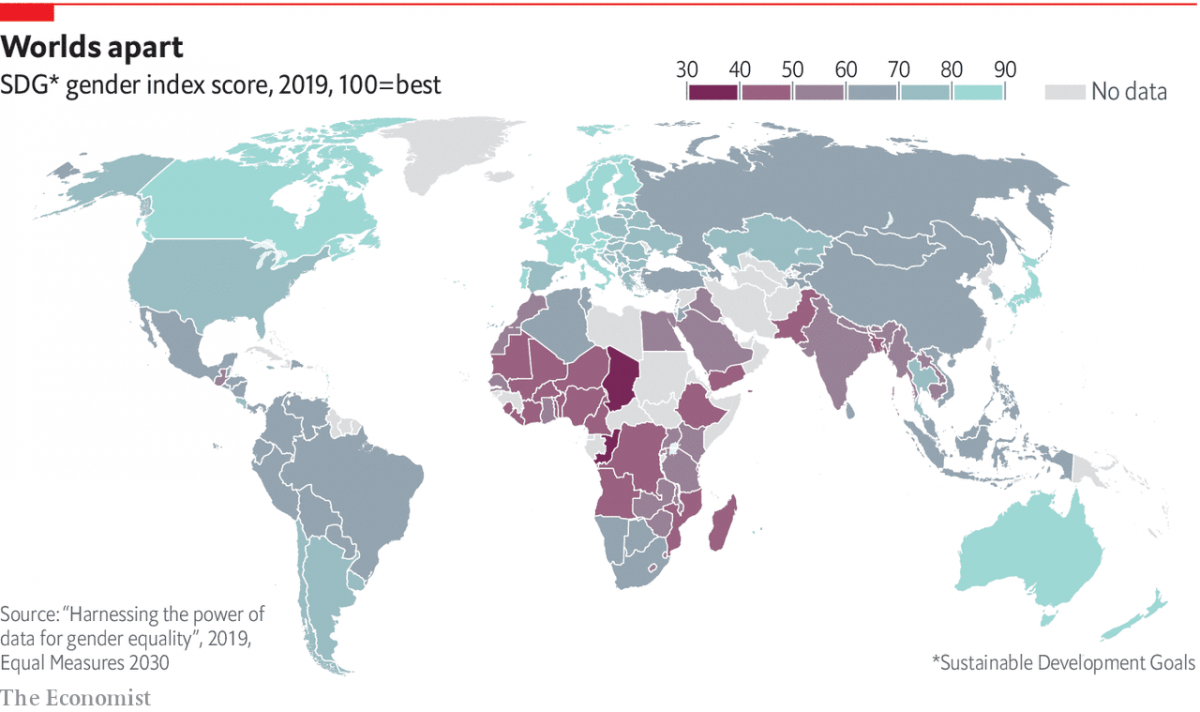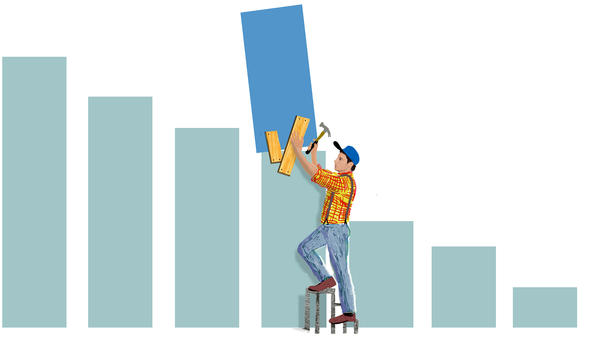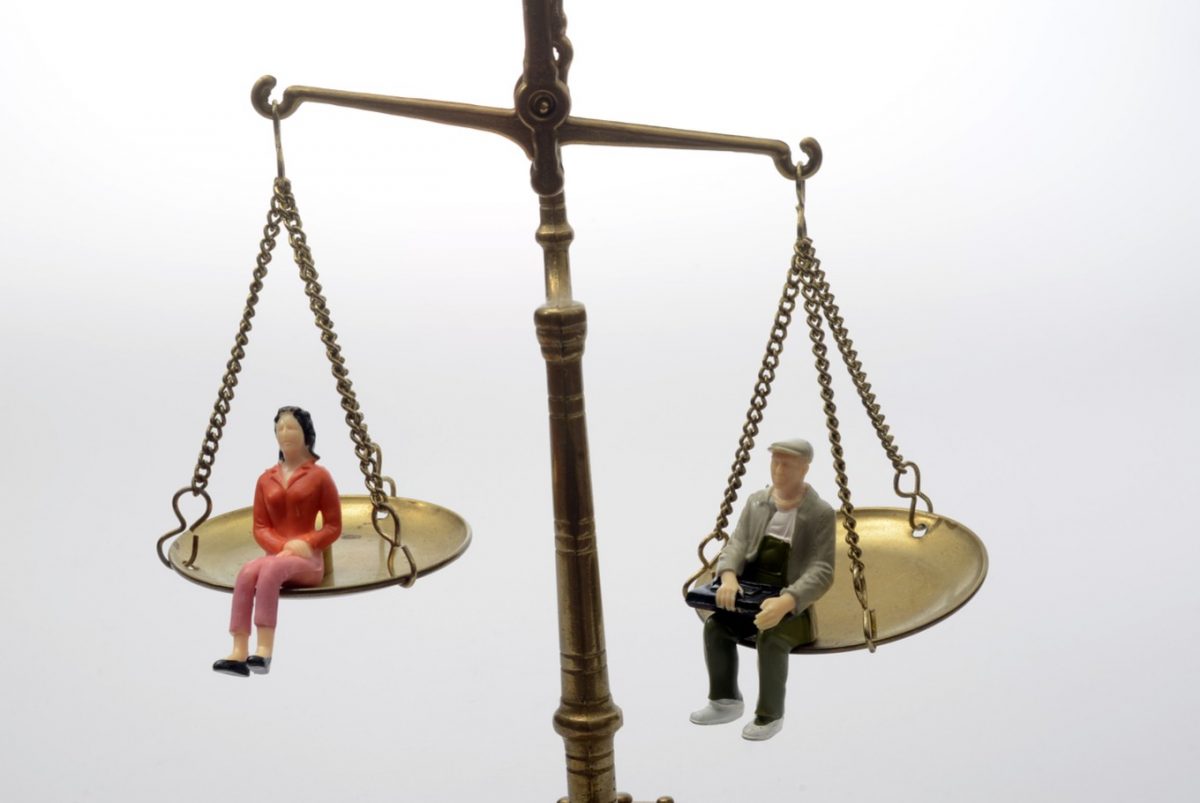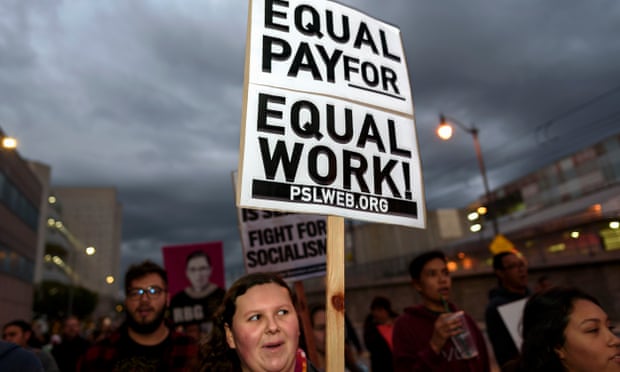
“Evidence suggests that, despite commitments made at the international level, measures to prevent and eliminate discrimination and violence against girls in Latin America and the Caribbean, guaranteeing their access to comprehensive health services and justice, have been neither effective nor appropriately implemented.”
Assessing progress towards gender equality in a region where deep inequality gaps persist – not only between women and men but also between different groups of women – has required coordinating the processes of social control and monitoring to ensure accountability and, here, the feminist movements have played a fundamental role.
Achieving gender equality may be an even more remote goal than previously imagined.
Not a single country in the world is on track to achieve gender equality by 2030, according to a newly launched index that measures progress against the 2030 Agenda for Sustainable Development, a set of goals agreed upon by all UN member states in 2015.
Let’s set the record straight. Providing women and girls with equal access to education, health care, decent work, and representation in political and economic decision-making processes is important for the world. Societies have advanced their gender equality and women’s empowerment initiatives, but women and girls continue to suffer from discrimination and violence. And this needs to change.
Equal Measures 2030 (EM2030) is a joint effort of leading regional and global organizations from civil society and the development and private sectors working to connect data and evidence with advocacy and action on gender equality. This coalition includes partners like the Bill and Melinda Gates Foundation, KPMG, ONE Campaign, Asia-Pacific Resource and Research Centre for Women (Arrow), Data2X, Plan International, and others. Their mission is to ensure girls’ and women’s movements, advocates, and champions have access to the robust data and evidence they need when they need it, in an easy to use format so they can drive faster progress towards the gender equality commitments in the Sustainable Development Goals (SDGs).

“THIS IS a man’s world,” sang James Brown in the spring of 1966. The adage still holds true today. In 2015 the United Nations General Assembly approved the Sustainable Development Goals (SDGs), a collection of targets for social progress to be achieved by 2030. The goals closest to being met are those for hunger and nutrition, water and sanitation, and health and education. In contrast, one of the objectives that the world is farthest from meeting concerns gender equality.
A recent report from Equal Measures 2030, an initiative co-sponsored by the Gates Foundation, ranks 129 countries on a scale from zero to 100 on 15 of the 17 SDGs, taking measures on 51 issues including health, gender-based violence and climate change. Data are drawn from UN agencies, the World Bank, NGOs, think-tanks and Gallup, a polling firm.
Welcome to the latest edition of our Diversity & Inclusion News Round Up. Today we are talking about gender and racial bias in STEM jobs, how Sweden improved maternal health, Nike’s latest campaign and the findings of the UN SDG Gender Index.
Gender
Since 2012, Sweden is allowing fathers to take some of their paternity leave while mothers are still at home. According to a new study, released by two researchers from Stanford University, this has a significant impact on mothers health and reduces the need for postpartum hospitalization and the prescription of anti-anxiety medication and antibiotics.
Bias
A new study looked at gender and racial bias in hiring for STEM roles. Science faculty members from various US universities were asked to evaluate fictitious CVs – and although they were all identical, the names differed and profiles that apparently came from women of colour, were ranked the lowest.

It’s a brand new ranking.
Called the Sustainable Development Goals Gender Index, it gives 129 countries a score for progress on achieving gender equality by 2030.
Here’s the quick summary: Things are “good” in much of Europe and North America.
And “very poor” in much of sub-Saharan Africa.
In fact, that’s the way it looks in many international rankings, which tackle everything from the worst places to be a child to the most corrupt countries to world happiness.
Washington D.C. , June 10, 2019 — I am enormously grateful to Madeleine Albright, Melanne Verveer and the Georgetown Institute for Women, Peace and Security for their partnership in today’s event, and to you all for being here. Madeleine and Melanne have long been teachers of mine, and I am delighted to share some of the lessons they, and others, taught me.
I hope you will understand if I say the most important participants in today’s event live a long way from here. I am thinking of the women and girls in the forty fragile and conflict states where IRC works. They are the reason we are here today.
Women across Switzerland are set to go on a strike for their rights on 14 June 2019. They’re demanding “more time, more money, more respect”.
June also marks the release of the first global index to measure progress against a set of internationally agreed targets – the Sustainable Development Goals (SDGs) Gender Index. The summary of the report that came last week gave a “poor” global score for gender equality. A score of 100 reflects the achievement of gender equality in relation to the targets set for each 14 indicators. The lobal average score is 65.7/100 which is described by the report as “barely a passing grade”.

World leaders are failing 1.4 billion girls and women on promises of a fairer future, according to a global index launched at the world’s biggest gender equality conference. The research shows the world is way off track to meet a 2030 deadline for achieving gender equality, with not one country having reached the “last mile”.
Some 8,000 delegates from 165+ countries – from world leaders to grassroots activists – are attending the Women Deliver conference in Vancouver. Speakers include the founder of the #MeToo movement against sexual harassment, a Nigerian woman kidnapped by Boko Haram jihadists and a Pakistani squash champion who evaded the Taliban by living as a boy.
(CNN)World Refugee Day is an emotional moment every year. When UNHCR publishes its annual totals on the number of people displaced by conflict and persecution — this year more than 70 million — we are forced to confront our failure to bend the arc of history towards justice for millions of refugees around the world.
Today, as I stare at these new numbers and think about the millions of individual lives shattered by crisis, I feel, above all else, frustration that the world continues to fail the women and girls who remain the most marginalized and abused group in any conflict. A report by Equal Measures this month showed that not a single country is on track to achieve gender equality by 2030 — the target date for conclusion of the UN Sustainable Development Goals — and in most cases, this threatens the well-being and safety of women and girls. Fragile and conflict states like Chad, Yemen and DR Congo are furthest behind, largely attributed to the level of violence and insecurity endured by women and girls in these settings.

No country in the world is on track to achieve gender equality by 2030, according to the first index to measure progress against a set of internationally agreed targets.
Melinda Gates, co-chair of the Bill and Melinda Gates Foundation, said the index, launched on Monday, “should serve as a wake-up call to the world”.
Even the Nordic states, which score highly in the index, would need to take huge strides to fulfil gender commitments in the 17 sustainable development goals (SDGs), which 193 countries signed up to in 2015. The goals are considered the blueprint for global efforts to end poverty and inequality and halt the climate crisis. The deadline to meet them is 2030.
The Bill & Melinda Gates Foundation is not only the largest foundation in the world, it also has a track record of making philanthropic bets that others follow. And they are now doubling down on gender.
One year ago, Gates Foundation launched their first-ever gender strategy. While the foundation has worked on issues related to women’s and girls’ health, this is the first time they’ve developed a strategy specifically to tackle gender inequality. Their narrative, equal is greater, aims to unite global stakeholders around how gender equality benefits everyone—not just women and girls.




